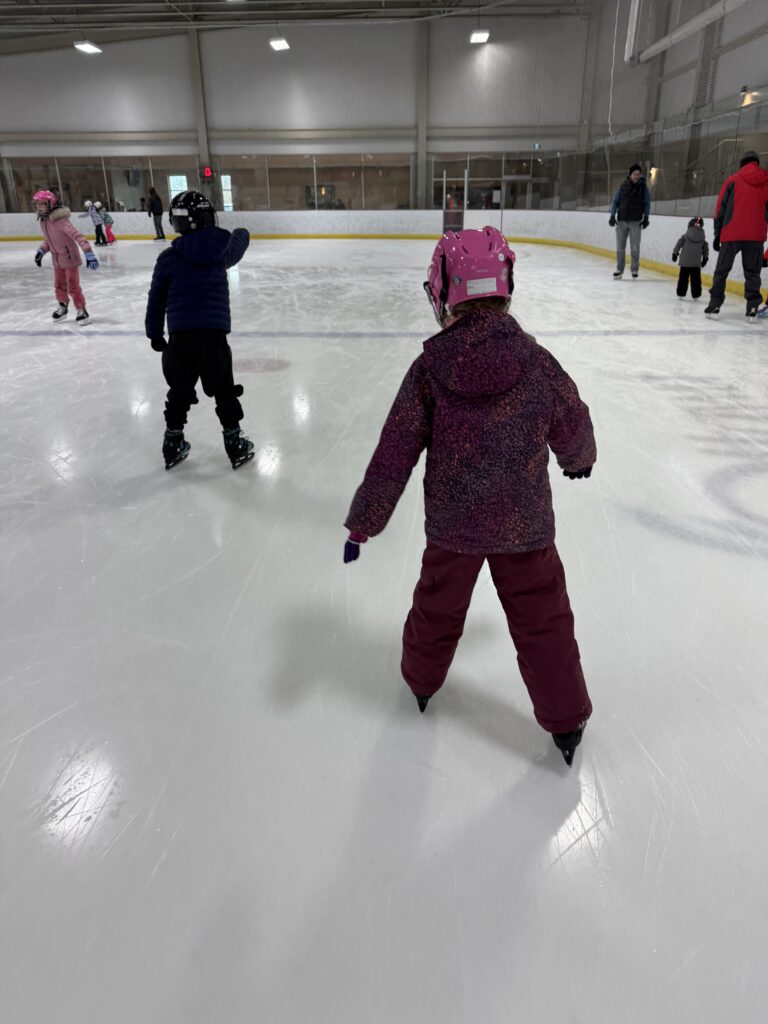
This picture of my kids fills me with joy.
In a world that is divisive, angry and uncertain, this picture is a reminder of the world we can live in versus the one hammered to us by the media. It’s a reminder that we need to unplug, get up from our chairs, and head out into the world to remember what it’s really all about.
When you look, there’s nothing political or stimulating about skating. You’re circling the ice until the buzzer goes for everyone to switch directions, then once more to signal the end. Yet, nobody is checking the time, checking their phones or complaining about wanting to go home. You just keep moving until it’s over.
There are all kinds of people out there for the sole purpose of wanting to have a good time and despite what else may be going on in their lives, they are putting it aside for this moment. Their world doesn’t stop, but rather transforms. We have been so inundated with toxicity and fear of what’s to come, that we can forget the simplicity of what joy can be.